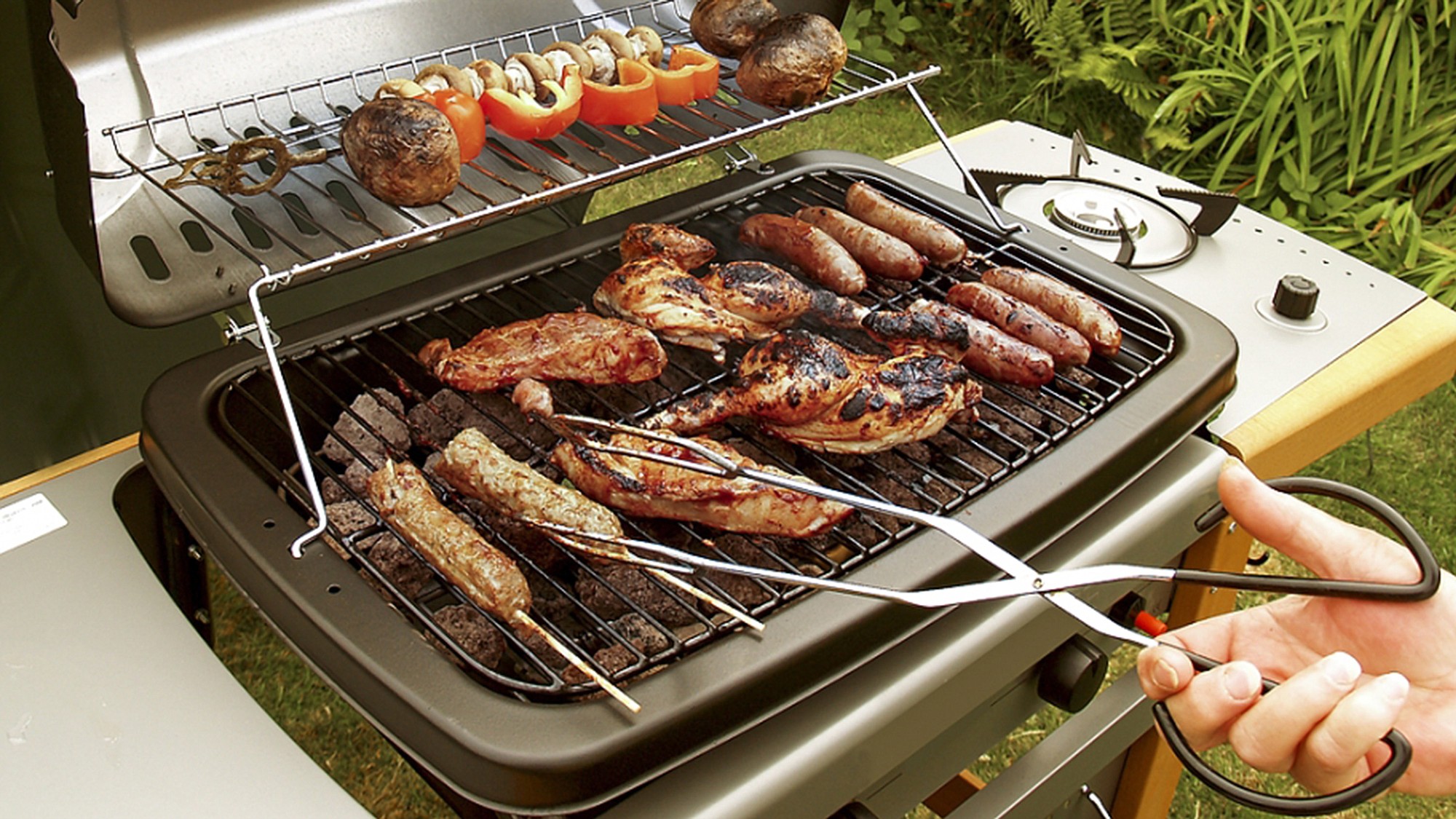Among outdoor grilling fans, no rivalry burns hotter.
Certain rivalries last forever — think Coke vs. Pepsi or Apple vs. Windows — and, now, gas grills vs. charcoal grills.
We asked some seasoned grilling experts to weigh in on this searing question as the spring/summer grilling season arrives.
• Gas grills bring convenience.
Aaron Nelson, owner of Quality Grill Service in Indianapolis, says grills powered by gas or propane turn on faster and offer more options and control than comparable charcoal grills.
“You can get your food on the grill in 10 minutes, you don’t have to keep adding coals, and you can moderate your heat,” he says. “You can cook a steak, fish, chicken and veggies at the same time on a gas grill. Someone who’s really savvy with a grill and wants to do things like smoking meat might gravitate to a charcoal grill, but the gas grill offers more options to cook quickly and conveniently.”
• Charcoal wins the flavor competition.
Nonetheless, Nelson, who primarily works on gas grills, says many grillers swear by the intangible element that charcoal adds to the barbecue experience.
“You’re using smoke-heat, so your meats are going to have a little more flavor,” he says. “The gas grill industry has some really neat designs to mimic the smoky feel, and a seasoned grill brings some of that flavor, but you can never fully mimic what charcoal-smoked meat will taste like.”
Jeremy Leyva, sales associate at the All American Grill Store in Jacksonville, Fla., says the two types draw in different fandoms, especially given the do-it-yourself, wing-it-on-the-fly creativity charcoal offers.
“Gas fans like the ease of use and not having to tinker,” he says. “Diehard charcoal fans know they’ll get a different flavor. A lot of people who like to work with their hands or tinker tend to lean toward the charcoal.”
• Check the fuel differences.
Nelson says gas grills consume less fuel and thus cost less. At a cost of about $20 per refill, a single propane tank will last for more than 20 grillings, he says. “You’re looking at less than a dollar per cooking to feed your whole family,” Nelson says. “A bag of charcoal runs between $6 and $10, and it can only be used once.”
However, Leyva points out that modern, ceramic charcoal grills cook with more than just the blackened charcoal briquettes most people recognize from years of outdoor entertaining. “Lump” charcoal offers a high-heat, all-natural format.
“It’s all hickory or oak, with no accelerants,” he says. “You get a better taste from it, and it tends to last longer, because unlike charcoal briquettes, you can relight it next time.” He says a 20-pound bag costs about $24.
• Look for the warranty.
No matter which kind of grill you purchase, pay close attention to the warranty to ensure many years of happy barbecues.
“You can buy a grill for a couple of hundred bucks at a big-box store, but it’ll be junk in three years,” Nelson says. “The good companies like Weber or Broilmaster offer strong warranties so this will be the last grill you ever buy. You’ll be spending around $800 or $900 for a portable Weber grill, but the 25-year warranty makes it the best value for your dollar.”
Leyva says people can pay as little as a few hundred dollars for a charcoal grill, but he advises customers to go with a name brand with a solid warranty, which tends to cost between $800 and $1,200.
“Pay attention to the thickness of the stainless steel and the extent to which the company backs the warranty,” he says.




